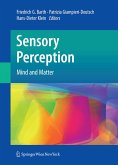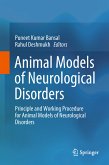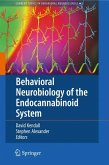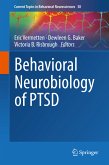Dieser Download kann aus rechtlichen Gründen nur mit Rechnungsadresse in A, B, BG, CY, CZ, D, DK, EW, E, FIN, F, GR, HR, H, IRL, I, LT, L, LR, M, NL, PL, P, R, S, SLO, SK ausgeliefert werden.
Hinweis: Dieser Artikel kann nur an eine deutsche Lieferadresse ausgeliefert werden.
"This book reviews the neurobiological underpinnings of aggression and violence. ... The target audience includes neurobiologists, neuroscientists interested in social behavior in general and aggressive behavior in particular. ... This is an excellent reference on this important, developing area of research. Any researcher or clinician involved in the study of aggression or the treatment of violent individuals would benefit from reading this informative book." (Michael Joel Schrift, Doody's Book Reviews, July, 2014)









